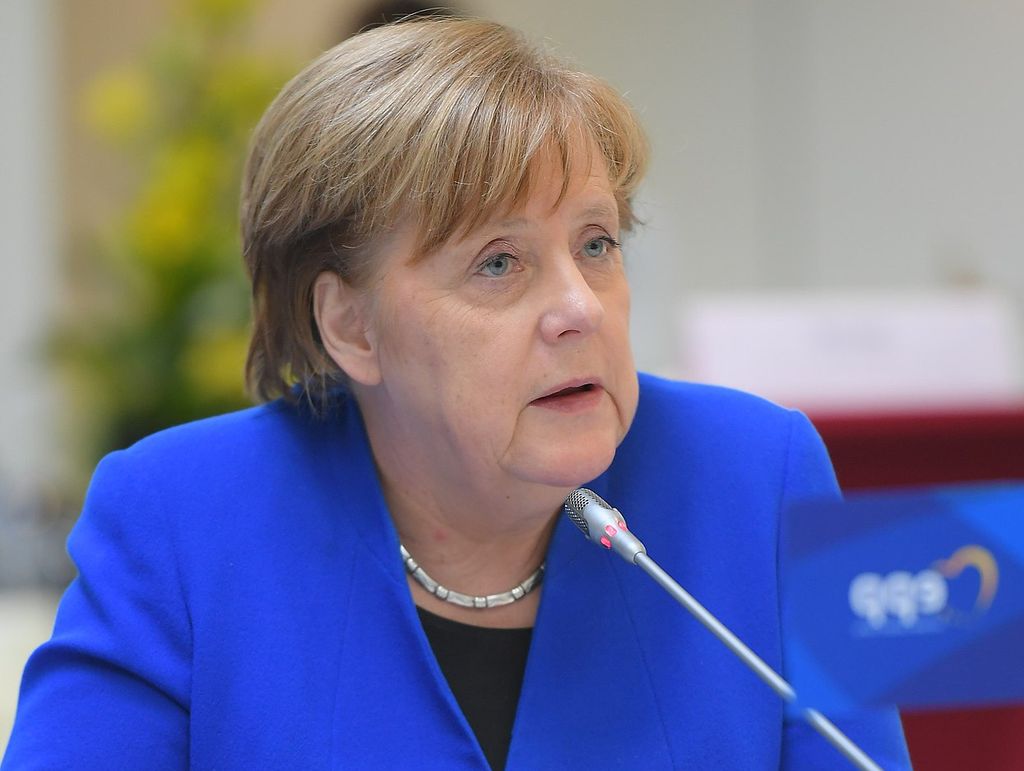A tight race in Germany’s election could mean a long process to decide who will lead the country. Iceland’s election nearly gave Europe its first parliament with more women than men. Today, NFK takes a look at these recent elections.
Germany Election Results Close, Next Leader Not Yet Known
Germany’s election yesterday was an important one, since it decides who will replace Chancellor Angela Merkel, who has led the country for 16 years. The election results were so close that it may be a while before Germany has a new chancellor.
Germany’s Chancellor
The job of chancellor in Germany is similar to the prime minister’s position in many other countries. Germany also has a president, but the chancellor is the leader of the government and the country.
Voters don’t elect the chancellor directly, but they do elect a local member of Germany’s parliament, known as the Bundestag. They also get to vote for a political party. Voters know ahead of time who will lead each party.

(Source: European People’s Party [CC BY 2.0], via Wikimedia Commons.)
Ms. Merkel became chancellor in 2005, the first woman to hold the position. She was re-elected three more times, serving a total of 16 years. Ms. Merkel has been a strong, stable leader who has guided Germany through difficult times.
Her leadership goes beyond Germany. Many people see her as the leader of the European Union, and one of the most powerful women in the world. Since Ms. Merkel announced that she wouldn’t run again, other politicians have struggled to impress German voters.
😕
This image has not been loaded because of your cookie choices. To view the content, you can accept 'Non-necessary' cookies.
Armin Laschet is the candidate from Ms. Merkel’s Christian Democrats (CDU) party. Though Ms. Merkel supports Mr. Laschet, he’s had trouble connecting with voters. Above, Mr. Laschet speaks to supporters on election night.
Armin Laschet is the candidate from Ms. Merkel’s Christian Democrats (CDU) party. Though Ms. Merkel supports Mr. Laschet, he’s had trouble connecting with voters.
Olaf Scholz leads the Social Democrats (SDP). Some people thought the SPD didn’t have a chance in this election. Mr. Scholz has surprised many by turning the SPD into the leading party.
Last night, incomplete election results showed Mr. Scholz’s party with 25.8% of the vote, slightly ahead of Mr. Laschet’s party, which had 24.1%. Both leaders say they’ll try to form a coalition. To do that, they’ll need to join forces with two other parties to create Germany’s first three-party coalition.
😕
This image has not been loaded because of your cookie choices. To view the content, you can accept 'Non-necessary' cookies.
Olaf Scholz leads the Social Democrats (SDP). He has surprised many by turning the SPD into the leading party. The SPD came out slightly ahead in yesterday’s election. Above, Mr. Scholz waves to supporters on election night.
Germany’s Green party did better than ever in this election, earning 14.6% of the vote. Many younger Germans liked the party’s focus on climate problems. The Greens will have a strong voice in any coalition government.
The Free Democrats (FDP), a party in favor of business, took 11.5% of the vote. The FDP are also likely to play a part in a coalition government.
😕
This image has not been loaded because of your cookie choices. To view the content, you can accept 'Non-necessary' cookies.
Germany’s Green party did better than ever in this election, earning 14.6% of the vote. The Greens will have a strong voice in any coalition government. Above, Greens leader Annalena Baerbock speaks to supporters on election night.
Once the results are final, the parties will begin to meet, trying to make the agreements needed to form a government. Since both leading parties are trying to form coalitions, the talks could be long and complicated.
Ms. Merkel will continue as chancellor until the agreements are made and the Bundestag chooses a new chancellor.
Iceland’s Parliamentary Election Nearly Sets Record
In Iceland’s parliamentary elections on Saturday, it looked at first like women won 33 out of the 63 seats. That would have made Iceland the first European country to have more than 50% women in its parliament. Later, a vote recount showed the numbers to be 30 out of 63, or about 48% female.
😕
This image has not been loaded because of your cookie choices. To view the content, you can accept 'Non-necessary' cookies.
In Iceland’s parliamentary elections on Saturday, it looked at first like women won 33 out of the 63 seats. Later, a vote recount showed the numbers to be 30 out of 63, or about 48% female. Above, an election worker looks on as a woman votes.
Since 2017, Iceland’s prime minister, Katrin Jakobsdottir, has led a coalition of three parties – her own Left-Green Movement, the Independence party, and the Progressive party.
The coalition easily won enough seats to maintain control as a coalition, but Ms. Jakobsdottir’s future as prime minister isn’t certain. That’s because her party lost seats, meaning it’s possible that the next prime minister could come from one of the other parties in her coalition.
😕
This image has not been loaded because of your cookie choices. To view the content, you can accept 'Non-necessary' cookies.
Since 2017, Iceland’s prime minister, Katrin Jakobsdottir, above, has led a coalition of three parties. The coalition easily won enough seats to maintain control as a coalition, but Ms. Jakobsdottir’s future as prime minister isn’t certain. That’s because her party lost seats.
Did You Know…?
There are just five countries where women make up half or more of the parliament: Rwanda, Cuba, Nicaragua, Mexico, and the United Arab Emirates.
(Front page image sources: Steffen Prößdorf [CC BY-SA 4.0], via Wikimedia Commons.)
